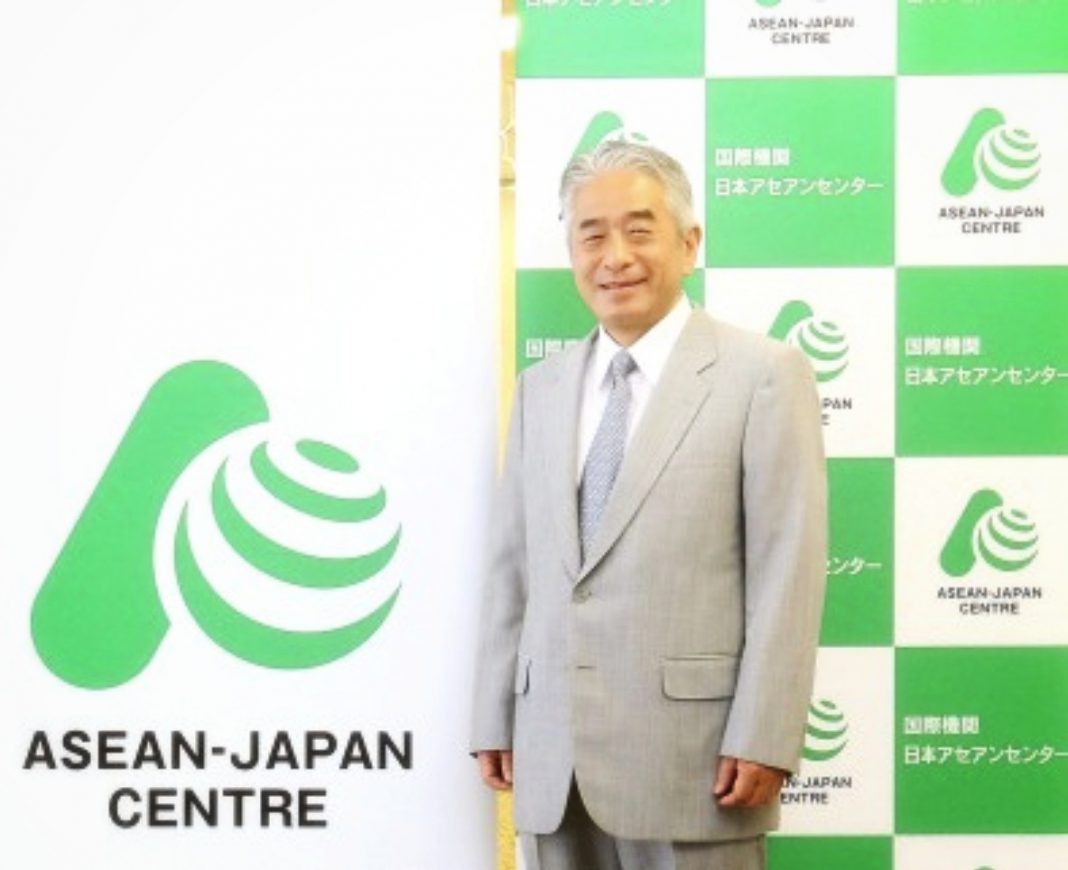In photo: Masataka Fujita Secretary-General of ASEAN-Japan Centre
Photo from https://www.asean.or.jp/ website
By Alithea De Jesus
While there are headwinds in the momentum of the economy in the Philippines due to the pandemic, a Japanese leader believes that the Philippines can strengthen the resilience of global value chains (GVCs) with other countries, including promoting new and crisis resistant industries to ease the impact of the coronavirus.
Masataka Fujita, Secretary-General of the ASEAN-Japan Centre, said the Philippines participation in GVC today is lower than the Asean average, but the country has the potential to strengthen GVCs with both ASEAN and non-ASEAN countries.
Fujita thus underscored a move towards more digitalization among ASEAN member states and their partner countries as a result of the impact of the pandemic, as well as to prepare for another crisis.
“(The) Philippines should continue to support the country’s digital transformation by providing the necessary telecommunication infrastructure and funding facility for information technology equipment and facilities, and by facilitating e-commerce and e-payment,” he said during the National Export Congress.
Fujita said the Philippines and Japan can move together and establish digital networks or value chains laden with digital technologies like the Internet of Things (IoT).
“While digitalization is stated as one of the strategies for a resilient GVC, it is also as (an) essential component of each of the other strategies…,” he said.
This as digitalization is needed to improve production and supply chains, manage risks, create crisis resistant industries, and build on the Philippine competitive edge, he added.
Apart from digital transformation by both public and private sectors, Fujita highlighted the importance of promoting new and crisis-resistant industries.
“There is a need to shift attention to a different set of industries which are required for the successful establishment of the Fourth Industrial Revolution. These industries should also be risk-resistant,” he added.
Fujita said these include life sciences, agro-food industries, transport equipment such as electric cars, business services such as Fintech, telemedicine, personal services for the elderly, information communications technology (ICT), energy, chemistry, and environmental conservation, and other industries such as technical textiles and
robotics.
“Philippines should continue to create a more conducive environment for new industries and start-ups to thrive. The Philippines and Japanese companies may have common interests in these new industries where Japanese companies may form joint ventures or take an equity investment,” he said.
To make GVCs resilient, Fujita cited the need to reconsider company strategies for international production, implement and utilize policy measures and actions related to production and supply chains, and improve risk management by the private sector.
He said foreign direct investments (FDI) activity is likely to decline by as much as 40 percent in the world, and 30 to 45 percent in Asia this year.
“To prevent the relocation of investment, governments must continuously improve location and conditions so that they remain attractive relative to other potential locations. The pandemic poses a serious challenge to ASEAN as a competitive location to host GVCs,” he added.
Fujita said the Philippines should provide an environment conducive to the operations of Japanese companies through, for example, assisting them to maintain and rebuild more resilient GVCs and businesses of affiliated companies.
He said there is increasing recognition of the importance of and rising demand for risk management, and many Asean countries need capacity building in this area
“Further cultivate capability in IT and business process management (BPM) to take advantage of experiences in risk management for producing goods and services. Philippine BPO (business process outsourcing)/BPM should be more digitalized, otherwise losing competitiveness in certain areas under the new normal (e.g. call centers),” he added.














